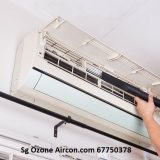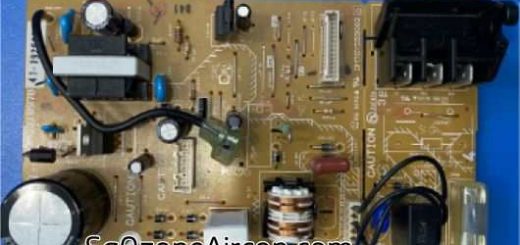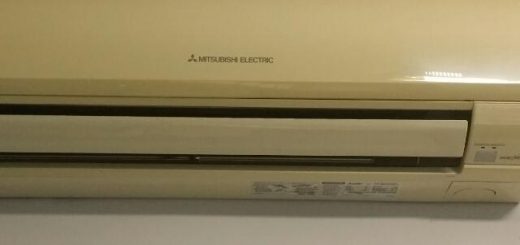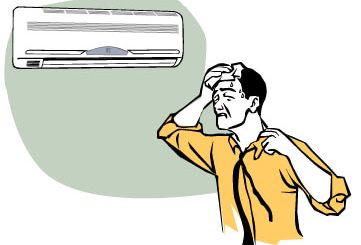Air Conditioning System Can Spread Coronavirus, Study Says
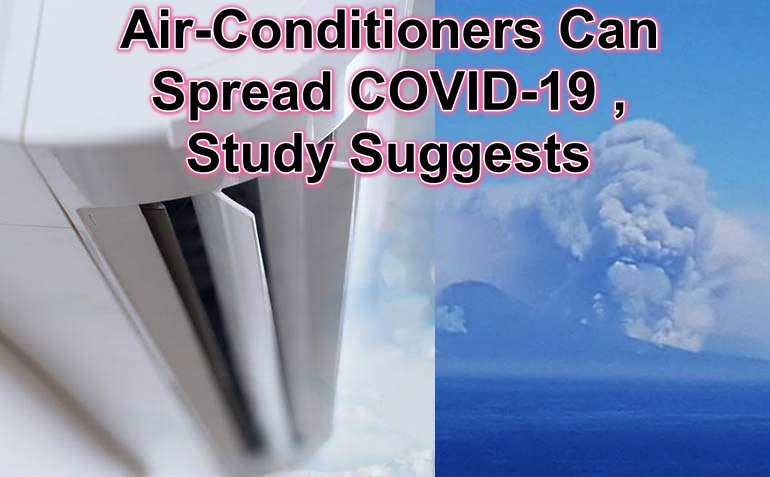
A recent study suggests air conditioning system could play a role in spreading the coronavirus.
The study looks at a woman in China who dined at a restaurant days before she showed COVID-19 symptoms. Researchers say she infected four people at her table and five at other tables because an air conditioner behind her spread droplets from her speech.
These findings suggest air conditioning system can blow around infected droplets hanging in the air, says University of Maryland environmental health professor Donald Milton. With enough air movement, your nose can pull in large particles, he says. Think pollen, for example.
The restaurant had exhaust fans that were sealed up at the time of the infections, he says.
“There was no fresh air coming in,” he says. “Outbreaks — where you have a bunch of people infected all at once like that — are almost exclusively occurring indoors in poorly ventilated environments.”
Some increasingly popular systems recirculate the air but don’t bring in fresh air or provide filtration. Called splits, these air conditioners are popular because of their energy efficiency, he says.
Ceiling fans also move the air around but don’t limit the spread of the coronavirus, he says.
Building managers and property owners need to look into how air is circulating through their space. Through air dilution or ventilation coming from outdoors, researchers find each person in a room should have 5 to 10 liters of fresh or filtered air per second, he says.
During the 1918 flu pandemic, patients stayed in fresh air hospitals — tents with no walls. Doctors at the time deemed fresh air a disinfectant.
While fresh air doesn’t kill the virus, Milton says it dilutes the virus and reduces the level of exposure for humans, making infection less likely.
New data shows sunlight does work as a disinfectant, he says, though sunlight can’t kill the virus if someone is already infected.
“If you are with other people outdoors, you have infinite amounts of dilution, ventilation,” he says. “And if it’s daytime and the sun is out, the sunlight is killing the virus that’s in the air or on surfaces so that you have multiple modes of preventing transmission.”
But that doesn’t mean people should break social distancing rules outdoors, he warns. Maintaining a six-foot distance helps with all modes of transmission, he says: touching contaminated areas, breathing in contaminated micro-droplets and getting hit by big droplets.
Ultraviolet light also works as a disinfectant. Researchers at Columbia University find UVC light is effective against viruses and bacterias, though the coronavirus needs a high dose.
Since it’s dangerous to humans, UV light can decontaminate surfaces when no one is in the room, he says. UV light can cause cancer and cataracts, so someone would need to turn the light on remotely.
Light within the UVC range can cause sunburns and damage your eyes, he says, though it doesn’t penetrate the skin well or pose a big risk of cancer.
UV light in the air ducts of air conditioning system has been used to control bacterial and fungal growth on the cooling coils, he says. This method can also clean the air.
In Philadelphia during the 1940s, upper room UV was used in elementary school classrooms during a measles outbreak to stop the spread of the virus. This method requires a high ceiling and a large volume of air to continuously kill the virus, he says.
“These are fixtures that are designed so that the light doesn’t get down to where the people are,” he says. “If you combine that with something like a ceiling fan to make sure that you are pulling air up from around the room’s occupants and through the kill zone before it comes back down for people to breathe, you can get very high equivalent air changes compared to pulling in air through a window or from an air conditioning system.”
Brigham and Women’s Hospital in Boston has used upper UV light in its waiting room for years, he says. While upper room UV also requires careful design, installation and maintenance, Milton says it has the potential to be useful and highly effective against the coronavirus.
https://www.wbur.org/hereandnow/2020/05/19/air-conditioning-coronavirus
May 19, 2020
- Robin Young
- Allison Hagan







